How US involvement in the Israel-Iran conflict will affect Taiwan
While all eyes are currently on whether the US will intervene in the Israel-Iran conflict, Lianhe Zaobao associate editor Han Yong Hong notes that the decision could impact the situation in the Taiwan Strait.
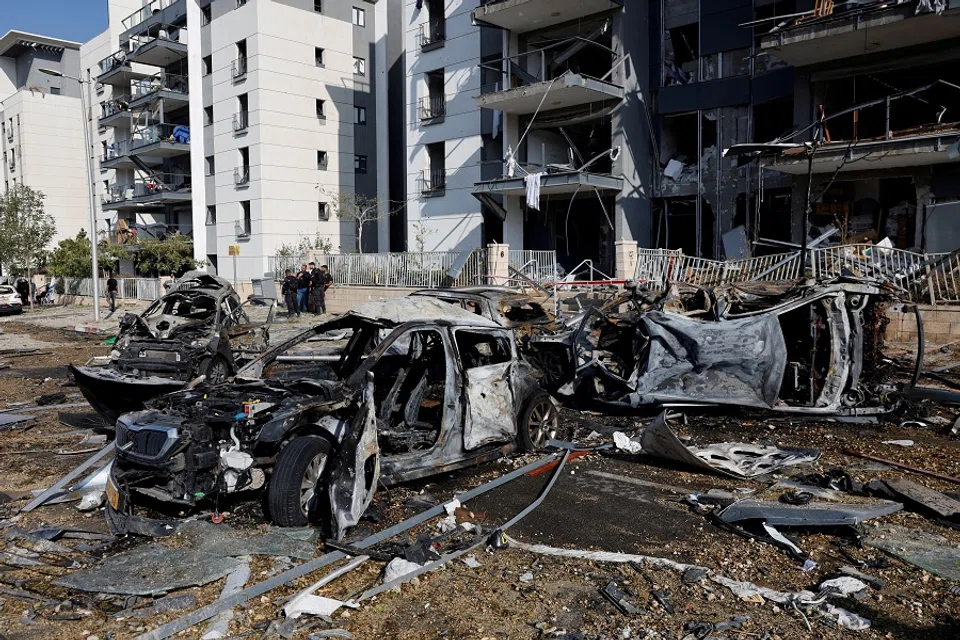
Would the US military intervene in the war between Israel and Iran? US President Donald Trump’s bow is drawn, but the arrow has not yet been shot.
Since the Israel-Iran conflict broke out on 13 June, the situation has escalated rapidly. Currently, three US aircraft carriers will be stationed in the Middle East, and it is rumoured that 31 aerial refuelling aircraft are being urgently deployed eastward. The US embassy is also evacuating citizens from Israel. All of this indicates that a “big event” is about to happen, with international political leaders and capital markets anxiously observing the US’s next move.
‘Finish the job’
White House officials have privately told the media that Trump has approved the operational plans against Iran on 17 June, but withheld a final order. Trump told reporters, “I may do it. I may not do it,” and added, “I like to make the final decision one second before it’s due.”
A giant billboard along a highway in Tel Aviv, Israel’s second largest city, is showing Trump’s portrait, accompanied by the prominent words: “Mr. President, Finish the job!”
The “job” refers to the deployment of the US’s massive arsenal, using B-2 bombers to carry the “bunker buster” GBU-57 A/B Massive Ordnance Penetrator to destroy nuclear facilities buried 80 to 90 metres underground in the mountains of north-central Iran. The GBU 57 A/B weighs 13,600 kilograms, and is the only weapon capable of neutralising Iran’s underground nuclear facilities, and can only be carried by the B-2 bomber. In other words, even if Israel could severely damage Iran, it would not be able to eliminate Iran’s nuclear potential without US intervention, leaving the job half-done.
Should the conflict continue for more than two weeks, it would be difficult to sustain both Israel’s intense offensive and its Iron Dome defence system. This is why Israelis are urgently calling on Trump to “finish the job”.
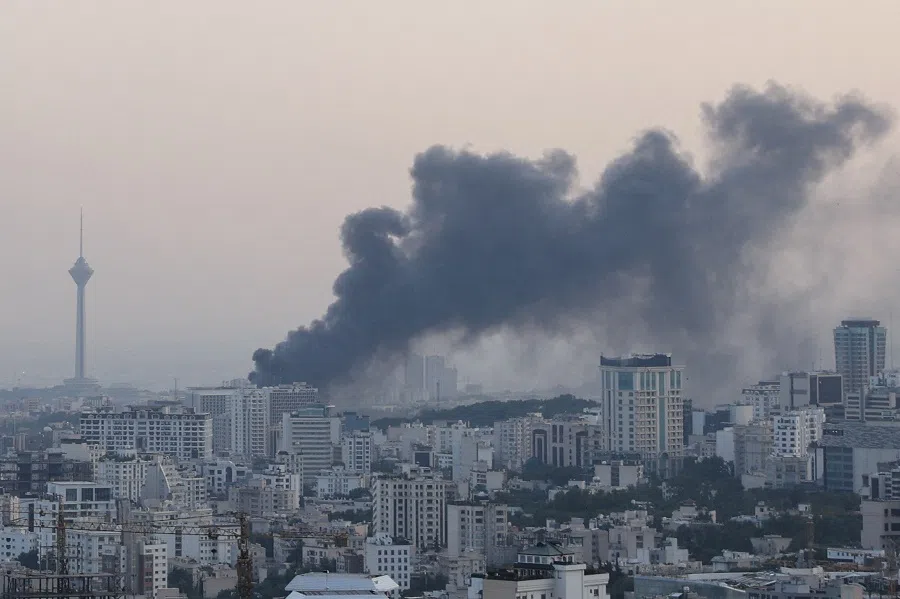
An injured and humiliated Iran, which is still capable of developing nuclear weapons, would pose an even greater threat to Israel as well as neighbouring countries. Iran currently possesses 409 kilograms of highly enriched uranium — just a step away from producing a nuclear bomb. Should the conflict continue for more than two weeks, it would be difficult to sustain both Israel’s intense offensive and its Iron Dome defence system. This is why Israelis are urgently calling on Trump to “finish the job”.
... if the US intervenes militarily in Iran or allows a “decapitation” operation to overthrow the current Iranian regime, it may face endless repercussions and see a repeat of the quagmire it experienced in Iraq and Afghanistan.
Division within the US
However, the US has several considerations.
Firstly, while it is theoretically possible to destroy deeply buried nuclear facilities with surgical precision strikes, in practice it is fraught with risks and uncertainties. The GBU-57 bunker buster has yet to be tested in combat, and the International Atomic Energy Agency (IAEA) cannot verify the exact location of Iran’s enriched uranium stockpiles.
The even greater risk lies in the possibility that if the US intervenes militarily in Iran or allows a “decapitation” operation to overthrow the current Iranian regime, it may face endless repercussions and see a repeat of the quagmire it experienced in Iraq and Afghanistan. This is because a cornered Iran could resort to desperate measures, such as attacking Israel’s nuclear facilities causing widespread nuclear leakage or blocking the Strait of Hormuz, and choke off the world’s most crucial oil transport artery, in turn causing a global spike in oil prices. Even without these desperate measures, Iran could attack US military facilities in the Middle East, or use terrorist measures to target Americans globally.
On whether or not to fight, Trump’s hardline MAGA (Make America Great Again) crowd is split between isolationists and hawks, with both camps at each other’s throats. Tucker Carlson, a former Fox News anchor aligned with the isolationist camp, strongly opposes US involvement in the Israel-Iran conflict and publicly clashed with US Senator Ted Cruz on television over the issue.
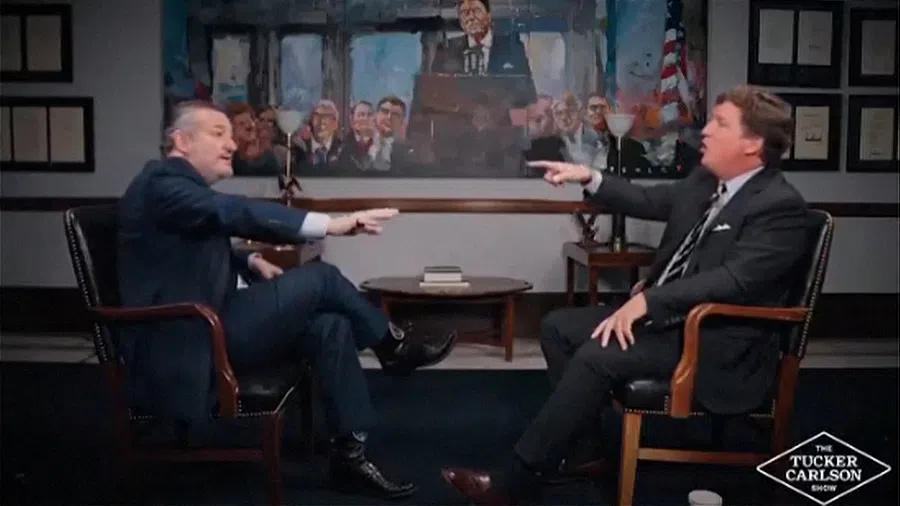
Trump called Carlson “kooky”, after which US representative Marjorie Taylor Greene came to Carlson’s defence.
Former US ambassador to Israel Daniel Kurtzer also co-authored an article with a former national security official warning that the US risks “again [going] into the regime-change business — a business in which exceedingly few Americans want to be involved any longer”.
Meanwhile, there is no lack of hawks — besides Cruz, that camp includes US senators Tom Cotton and Lindsey Graham.
An opportunity for China in the Taiwan Strait
What will Trump decide? Most Chinese commentators believe that the likelihood of military action is increasing. Niall Ferguson, the British historian who once declared “he who rules Taiwan rules the world”, has also urged the US to seize the moment and “end the principal threat to Middle Eastern stability. It can also send a signal to those other authoritarian powers who have been Iran’s enablers that American deterrence is back.”
If the US does not support even its closest allies with military force, and fighting breaks out in the Taiwan Strait, all the more the US military cannot be expected to intervene to aid Taiwan...
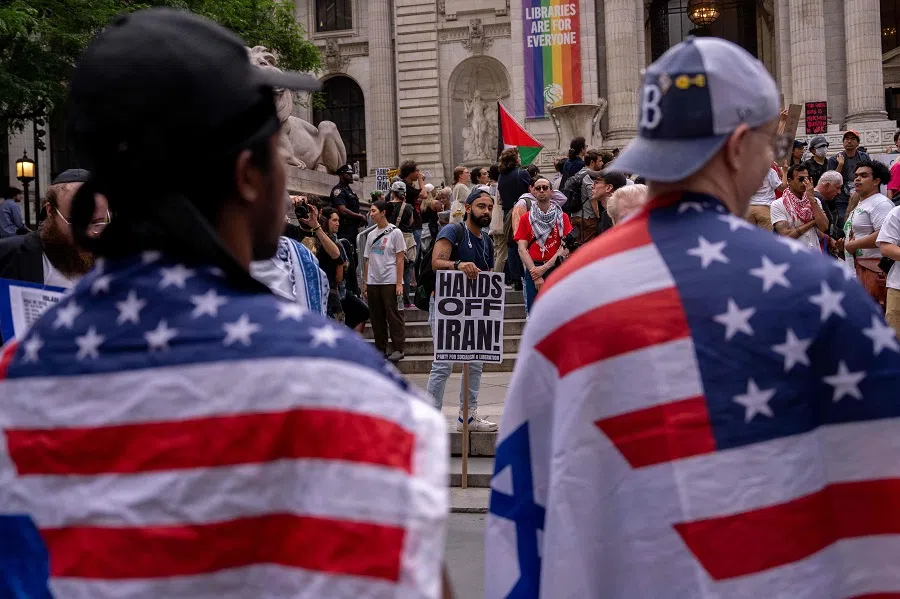
For some Western strategic thinkers, Trump’s stance on the Iran nuclear crisis and whether he dares to “finish what Israel started”, will not only shape the situation in the Middle East, but serve as a litmus test of the “heroism” of his administration.
If the US does not support even its closest allies with military force, and fighting breaks out in the Taiwan Strait, all the more the US military cannot be expected to intervene to aid Taiwan, given the far greater risks and uncertainties. Conversely, if the US draws a red line on the Iran nuclear issue, it could restore American credibility and prove that Trump is not all bluster.
However, US strategic analysts are also weighing another risk: if America gets bogged down in the Middle East and has to simultaneously handle both Iran and the war in Ukraine, would that not give China’s People’s Liberation Army a potential opportunity in the Taiwan Strait? This is the dilemma for the Trump administration.
Indeed, China also does not want the Middle East conflict to escalate or expand. Its primary consideration is not the Taiwan Strait but the Strait of Hormuz, whose smooth passage is closely linked to global trade stability and China’s direct interests.
... Iran would have to make real concessions on the nuclear issue, while the US must demonstrate that it is not afraid to fight, but chooses not to, which is not easy.
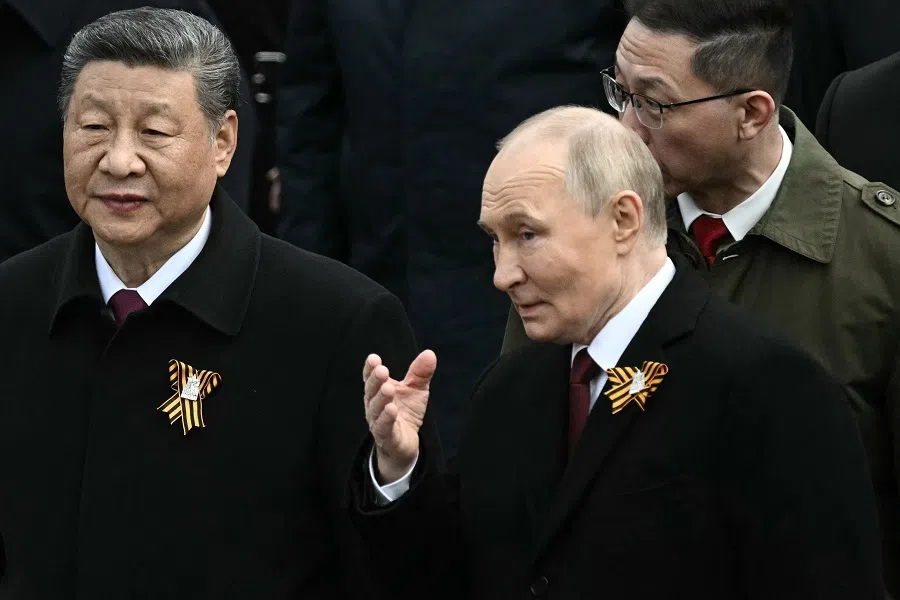
On 19 June, Chinese President Xi Jinping spoke on the phone with Russian President Vladimir Putin, stressing that the current Middle East situation is highly perilous, and achieving a ceasefire and ending the war is an urgent priority. The subtext was a call for Russia to use its influence on Iran to help mediate and push for peace talks to resolve the conflict.
For that to happen, Iran would have to make real concessions on the nuclear issue, while the US must demonstrate that it is not afraid to fight, but chooses not to, which is not easy. US military intervention in Iran cannot be ruled out, and the world is anxiously watching what it will choose to do.
This article was first published in Lianhe Zaobao as “从美国打不打伊朗看台海”.





